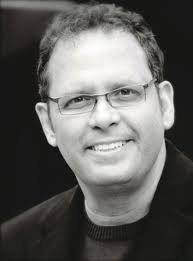 I woke up achy in my soul this morning—that sense of having no energy to be engaging, productive or generous. It’s usually followed by a sense of dread that today is going to be a day dominated by temptations to be “naughty.” My own history tells me that achy days are days where I’m more susceptible to eating badly, to buying something I don’t need, or to entertaining some salacious thought in my head that will feed impulses that are hard to manage.
I woke up achy in my soul this morning—that sense of having no energy to be engaging, productive or generous. It’s usually followed by a sense of dread that today is going to be a day dominated by temptations to be “naughty.” My own history tells me that achy days are days where I’m more susceptible to eating badly, to buying something I don’t need, or to entertaining some salacious thought in my head that will feed impulses that are hard to manage.
In the past these were my “white-knuckle” godly days—the days where I tried to stay busy doing godly things. If I didn’t, the chances were high that the day would devolve into my giving way to the naughtiness—hoping my sin would not be too grave (maybe only ONE piece of pie).
Then a decade or so ago I discovered something.
The psalmist claimed that we live “in a dry and weary land where there is no water” (Psa. 63:1). I think he was simply pointing out that we humans need more than this world has to offer—that we all ache for something beyond this place, which means nothing on this planet can completely satisfy our hopes and expectations. This gives birth to what I am calling THE ACHE. The ache is that unsettling gloom we bump into deep within the dark corridors of our souls. It shows its anguished head whenever our souls are bruised with boredom, hunger, anger, loneliness, fatigue—or when we feel rejected or stressed out. It’s the thing we often call discontentment or being “out of sorts.”
I know there are a lot of Christian people who claim they never experience anything other than eternal bliss in their souls—that their faith is always an ecstatic, unwavering “glory” that bubbles inside their bosoms at all times—always clean; forever effervescent; never encroached upon with doubt. But I don’t think they are being honest. Truth is we all ache; we all have “off” days.
What’s critical is what we do with the ache once we sense it. We can try to distract ourselves from it by praying or reading the Bible more, by working harder, hunting for romance or more intense friendships, playing video games, watching too much TV, et cetera. Or we can try to anesthetize the ache with inappropriate destructive activity like roaming into fantasy and lust; eating whole cases of Twinkies; going on unnecessary shopping sprees; or participating in compulsive behaviors like drug or alcohol abuse.
Where do YOU run when you ache inside?
Here are four things I try to remember to do when I wake up achy. First, I think, “Well…here I go again.” In other words, I EXPECT the ache. I recognize that I live in a land where there is no water, so, I shouldn’t freak out if my thirst is poignant at times.
Secondly, I have come to know the directions my ache pushes me. I know my weaknesses. I think it’s important to “know thyself.”
Thirdly, I work to REINTERPRET/REDIRECT the ache. I focus on letting it remind me that people who live in a fallen world…ache. The ache also points to a repeating idea present all through Church history captured in Paul’s statement about the Christians who were said to “long for [Christ’s] appearing” (2 Tim 4:8). To “long” is to “ache.” In another place Paul penned, “But our citizenship is in heaven. And we eagerly await [ache?] a Savior from there, the Lord Jesus Christ” (Phil. 3:20).
So, as a general rule, I stand up in my ache and declare: “Lord, I got the ache going on today. It hurts. But it reminds me I live in this fallen place—a citizen of another, and I’m suspicious that it also evidences my longing for your return—a “reminder” alarm that pops up on the screen of my soul that says: ‘Come quickly, Lord Jesus.’”
Fourthly, I purposely EMBRACE the ache; I try to enter the pain and angst with complete surrender. I accept it as a gift from God. By embracing the ache, I retrieve it from darkness and from being a motivation towards evil and flip it into a motivation towards the good. Instead of dreading the ache, I now want to protect and even cherish it! (How crazy is that??)
When I approach the ache in this way, what starts as a bummer day turns into a day of sweet pain (still pain!)—not unlike the ache of waiting at a train station for your lover to arrive—it may be a disorienting ache, but it is also filled with hope, joy, and anticipation.
Ed Gungor
